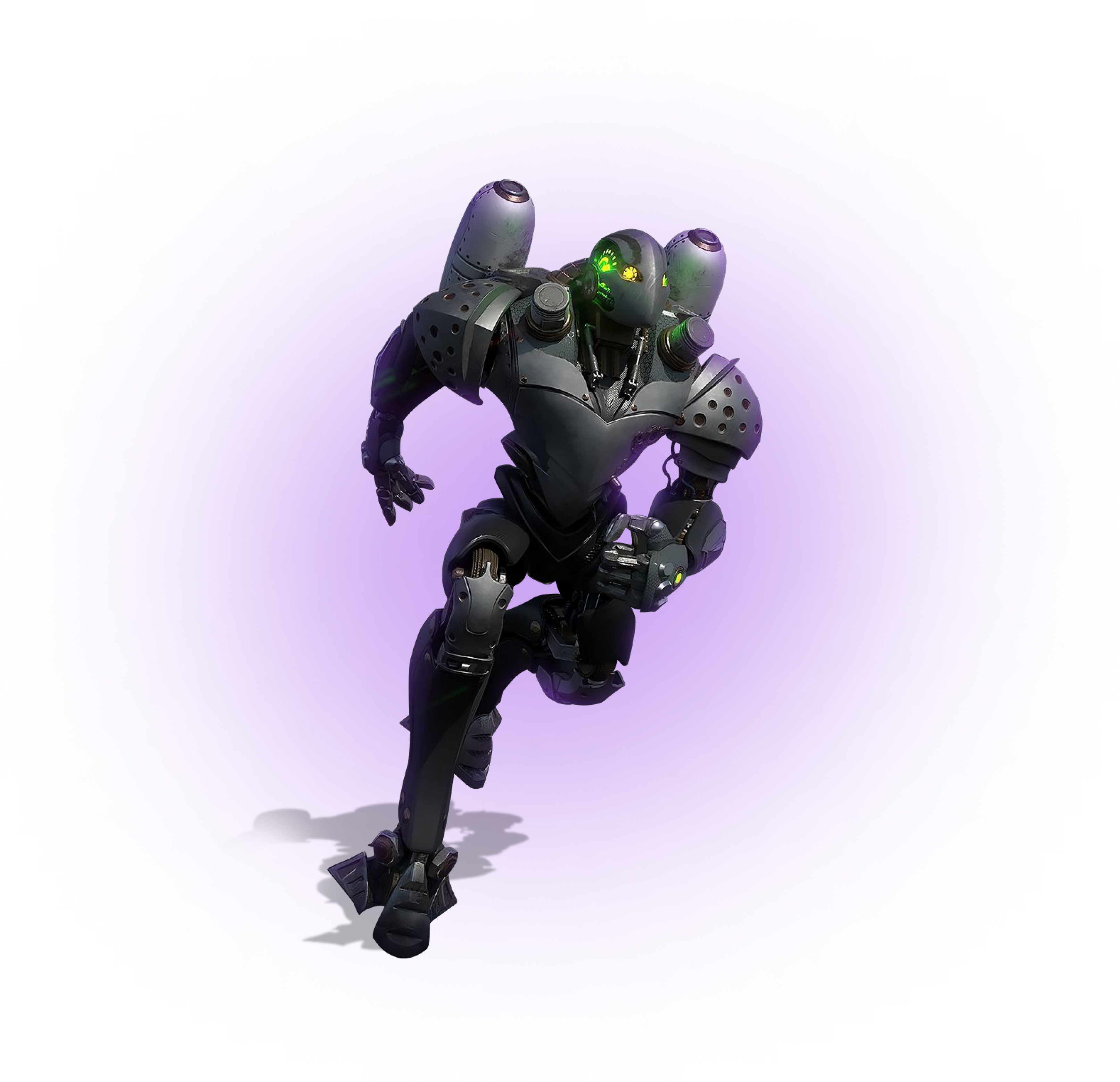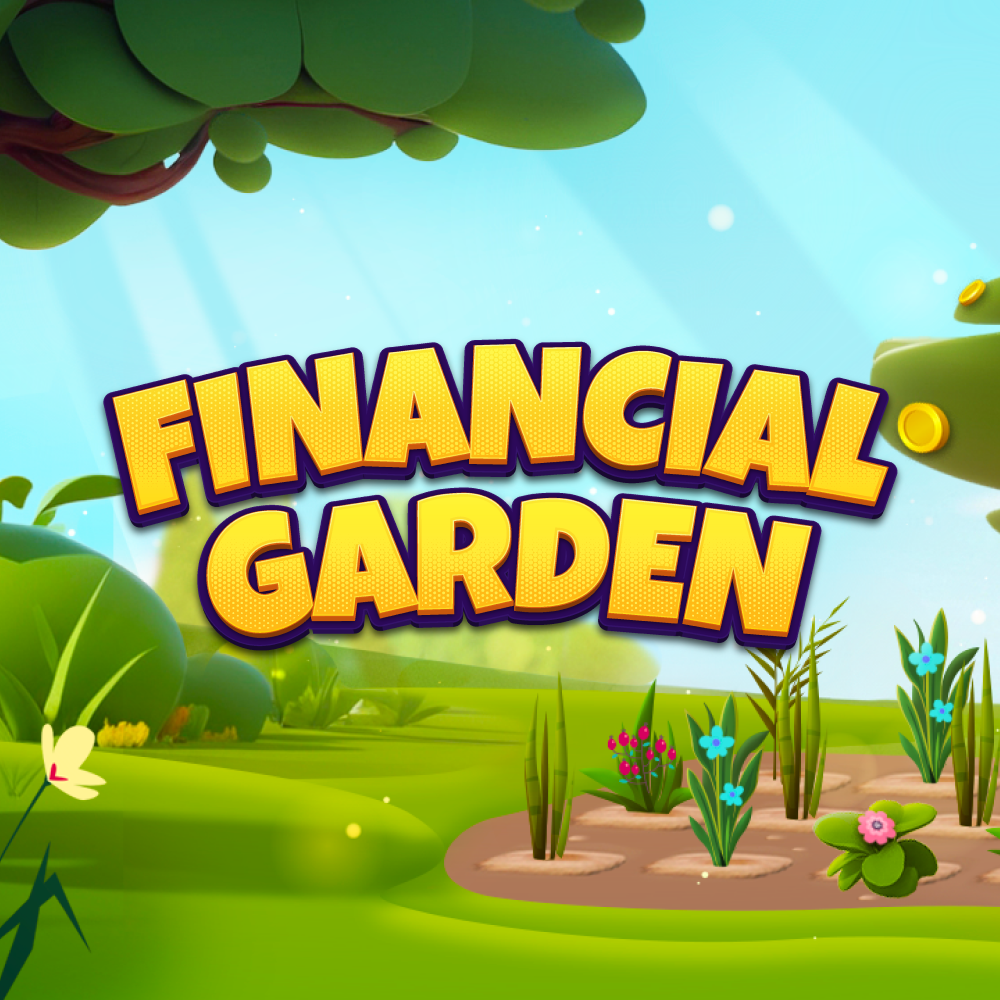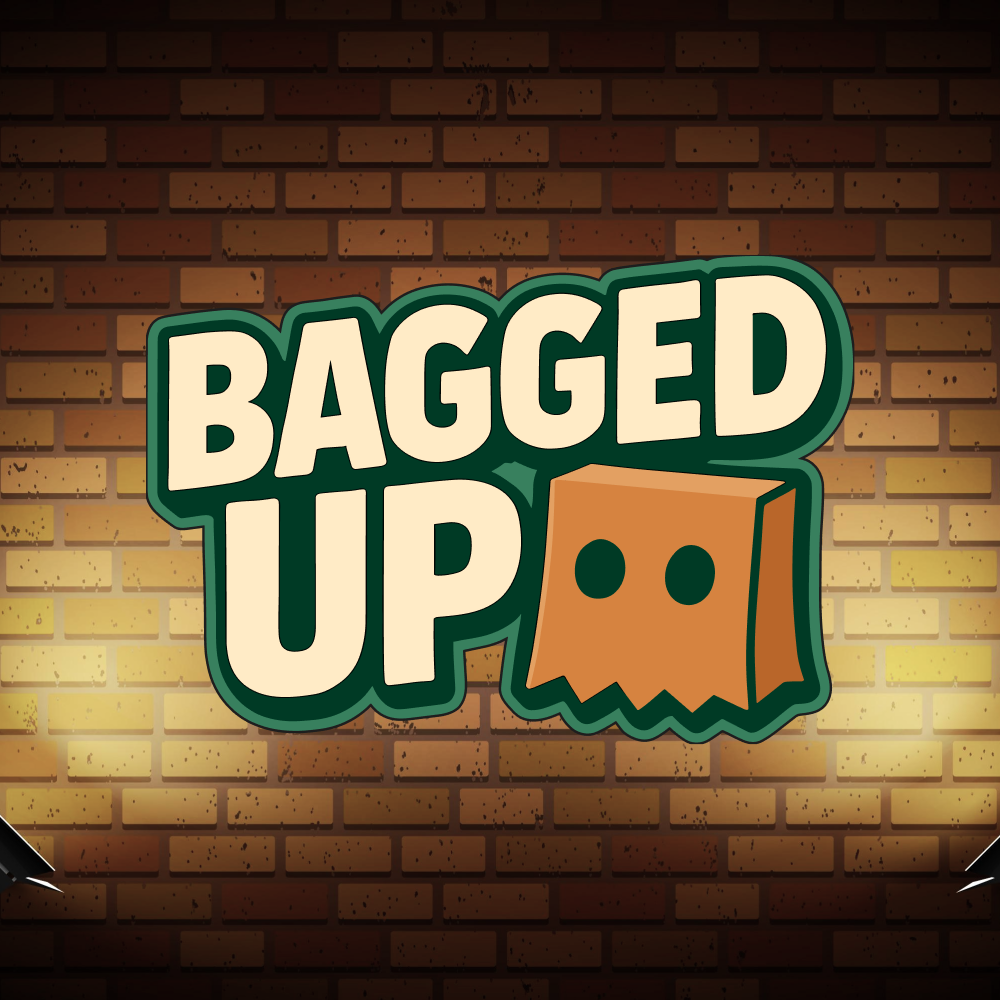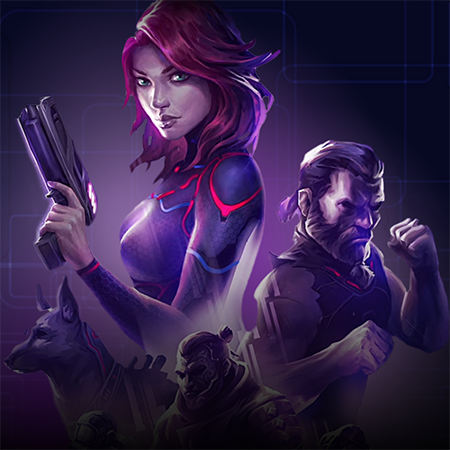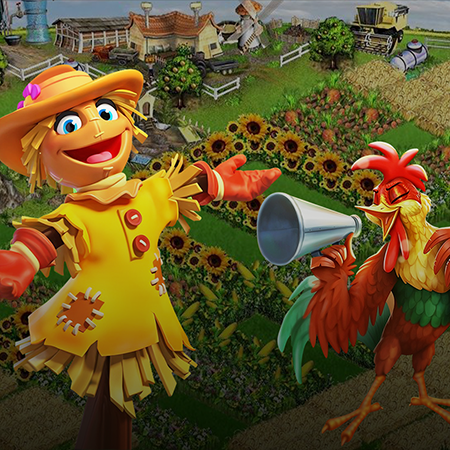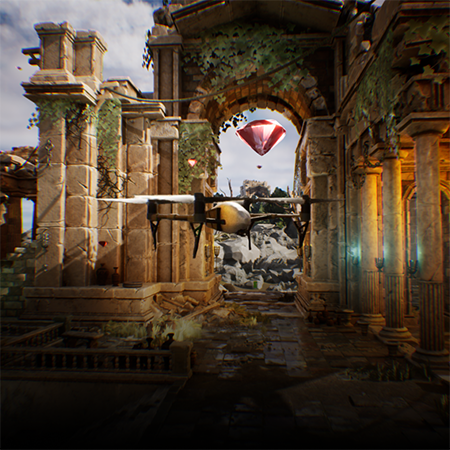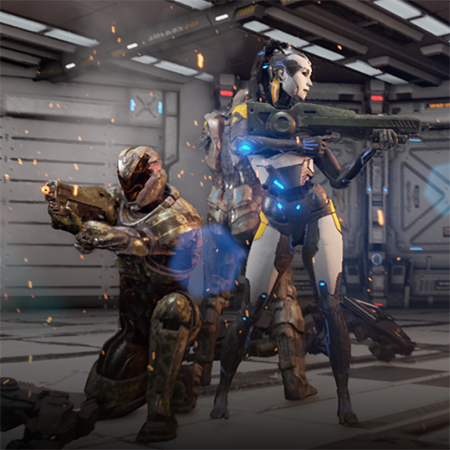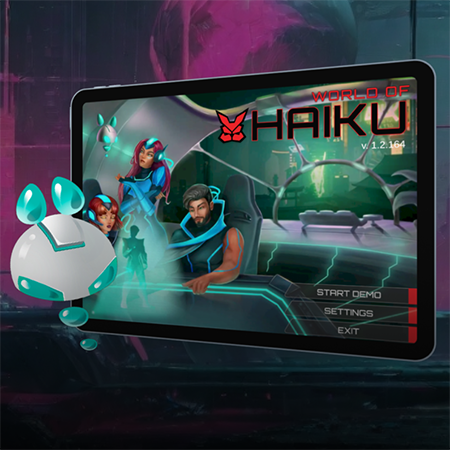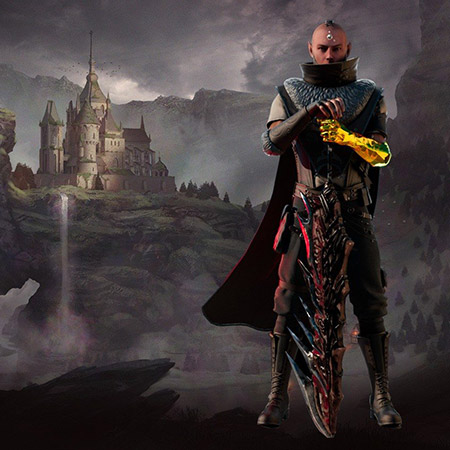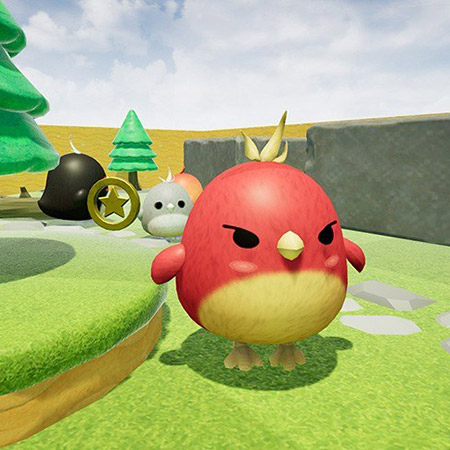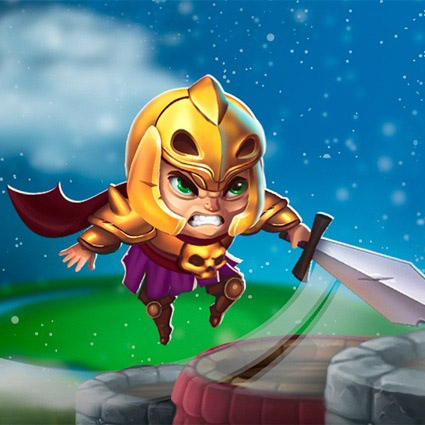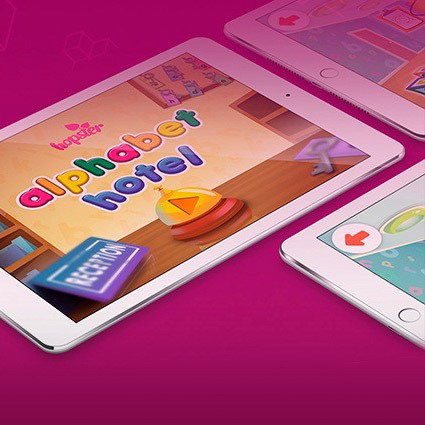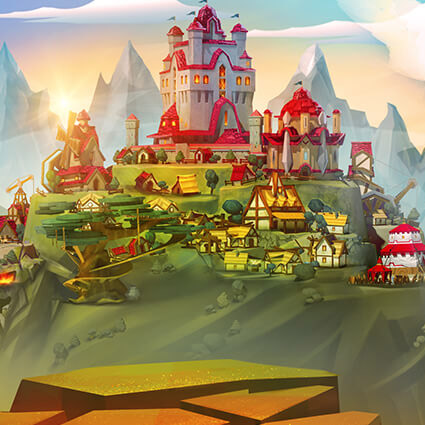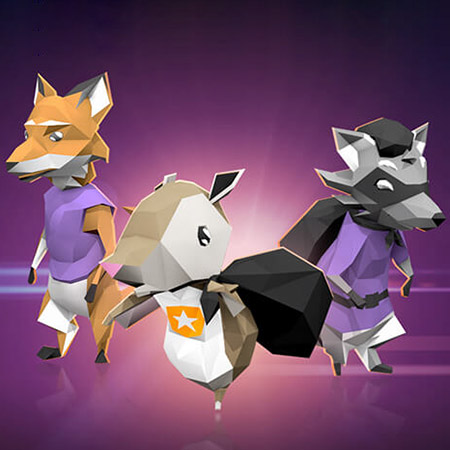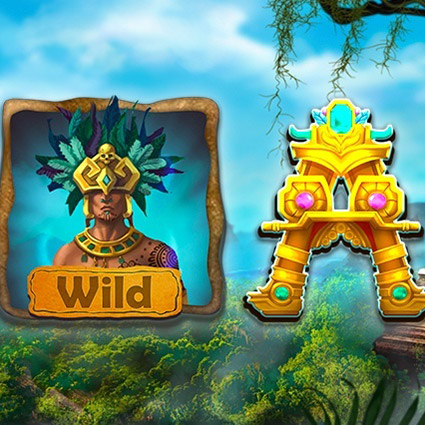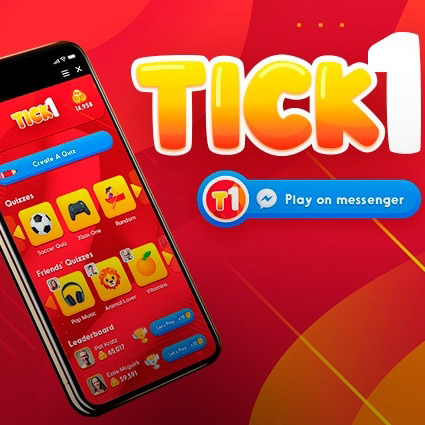In the dynamic world of game development, Unity stands as a titan, consistently making its mark within gaming studios worldwide. It's not unusual to hear Unity's name echo through meeting rooms as developers meticulously plan for mobile game creation. Many studios also decide to hire mobile game developers experienced with Unity to ensure efficient workflows and high-quality results. This unanimous preference for Unity in the game development area isn't an enigma – Unity has, time and again, proven to be a formidable engine for crafting compelling games.
With a striking record of success, Unity is utilized to construct over half of all mobile games, an impressive feat that elevates its stature in the industry. Even more remarkable is its performance among the upper echelons of mobile gaming: Unity proudly boasts a 65% share in developing the top 1000 most coveted apps. But it's essential to dispel any misconceptions at this point — Unity game development may be prolific, but it's by no means a walk in the park.
The landscape of creating a game in Unity demands in-depth understanding and thoughtful decision-making. Before embarking on the journey of creating games with Unity, there are several factors to contemplate regarding this powerful engine. As we delve deeper into this exploration, we'll investigate why Unity is the developers' tool of choice for mobile game creation and the experiences they encounter during these immersive projects.
Creating a game in Unity is more than just a technical process — it's an artistic journey that necessitates strategic planning and execution. Even before you initiate your project, comprehending this robust engine's unique facets is vital. Let's dive deeper to uncover why Unity is favored for mobile game development and the intricate journey developers undertake in such endeavors. Dive in, and discover the immersive experience that allows to create a Unity game.
Is Unity Good for Mobile Games?
Having been chosen by over a million developers, the question, "How good is Unity for game development?" may seem redundant. But, like all narratives, the tale of Unity in game development is nuanced. Indeed, Unity comes packed with an array of robust, commendable tools that significantly streamline the process of creating games. Yet, in the interest of balance, it's worth noting that other engines, like Unreal, Game Maker, and Cocos, also present their fair share of benefits.
In order to thoroughly understand why developers so often favor Unity for game development or sometimes opt against it, let's explore some key points of consideration. These factors influence decision-making when commencing a new project, with each developer finding their unique balance.
Unity strengths
- Superior cross-platform support allows you to deploy a game in Unity to Android and iOS simultaneously, with the potential to reach beyond 20+ other platforms.
- Unity simplifies the ad integration process through its built-in Unity Ads system.
- Unity utilizes C#, a coding language renowned for its relative simplicity.
- Unity boasts an expansive array of templates and prefabs, enabling quick prototyping for those keen to create games with Unity.
- Many of Unity's components are open source, inviting developers to improve upon them and tailor them to their needs.
Unity drawbacks
- For developers relatively new to the field of 3D games, mastering rendering and performance optimization in Unity can be time-consuming.
- Unity's internal collaboration tool, Unity Collaborate, has been described as confusing, with some developers finding external tools to offer superior organization.
- The cost of obtaining a Unity license may present a significant hurdle for some studios, particularly those with tighter budgets.
This overview barely scratches the surface of the intricacies involved in creating a game with Unity. For a deeper dive into Unity and its role in game development, feel free to explore our comprehensive article, “How good is Unity for game development?” This piece offers a well-rounded understanding of the Unity landscape, preparing you for you to create a Unity game development project.
How to Make a Mobile Game in Unity
The fascinating journey of game development, particularly creating a game in Unity, is one of deep exploration and constant lesson. It often spans months to grasp the fundamental elements and years to hone mastery of this complex art form. While it's impossible to encapsulate every nuance and piece of information required for the process within this brief discourse, we can undoubtedly provide a snapshot of the terrain.
We've outlined three prevalent approaches to mobile game development to guide you through the labyrinth of creating games with Unity. These methods, designed to accommodate various skill levels, present a roadmap for your Unity game development journey. Whether you are a beginner stepping into this world for the first time or an advanced developer looking for a challenge, there's a suitable path for you.
Each project undertaken within the sphere of Unity is a thrilling adventure, offering new insights and challenges. With a myriad of resources, including detailed tutorials, at your disposal, navigating through the process of creating a game in Unity becomes a rewarding endeavor.
Embark on your project with the understanding that learning is a continuous journey in game development. Through consistent practice, exploration, and a dash of creativity, you can unleash the full potential of Unity to create immersive, engaging games that captivate players across the globe. Let's dive in and unravel these approaches, categorized by their difficulty level, to facilitate your mobile game development journey in Unity.
Choose your difficulty level:
1. Hard – Full-cycle development
Choosing the route of in-house game development in Unity certainly requires dedication, patience, and a commitment to traverse the path without any shortcuts. This approach mandates gathering a team of skilled specialists, each contributing their unique expertise to creating the game. While some team members delve into the intricacies of coding and scripting, others focus on the many layers that bring a game to life — the art, the user interface, performance, and compatibility, to name a few.
Game studios with a history of building games with Unity often view this process as a thrilling challenge rather than a daunting task. However, constructing a game in Unity can be a formidable undertaking for businesses outside of software and game development.
The preparation phase alone can span several weeks when initiating such a project. This crucial period involves a thorough selection of qualified specialists and precise planning of the game development roadmap. Moreover, the timeline for creating mobile games can potentially extend over a year or longer.
As you walk through your Unity journey, remember that each challenge is an opportunity for learning and growth. Be it through tutorials or hands-on experience, every endeavor to create a game in Unity enriches your knowledge and equips you better for the future. Embrace the journey, and let each game development project be a testament to your growth in the fascinating world of Unity.
2. Easy – Visual scripting
Opting for a slightly more accessible path in the game programming journey, this approach allows you to leverage Unity's powerful visual scripting system, Bolt. By incorporating Bolt into your workflow, creating a game in Unity becomes a more streamlined process. No longer do you need to craft all your code from the ground up, inasmuch as Bolt facilitates an intuitive approach to constructing gameplay logic and mechanics.
Bolt comes bundled with the primary Unity Editor, offering the ability to sculpt gameplay using visual elements like graphs and tables. These visual elements can be effortlessly dragged, interlinked, and manipulated. They typically encompass only a few options per unit, rendering each piece of functionality easily comprehensible.
However, it's essential to bear in mind that while this method simplifies the process of creating games with Unity, it isn't a complete replacement for manual coding. While Bolt excels in constructing basic game playing mechanics, it might fall short when it comes to implementing more intricate sequences and functionalities.
Consequently, it's common to utilize Bolt for initial prototyping or as a tool for designers and artists to test their 2D and 3D creations within Unity. Creating a game in Unity using Bolt offers an ideal starting point for your project, particularly for those stepping into the world of game development for the first time or those seeking to conceptualize their game ideas quickly.
As your project evolves, you may find that incorporating a blend of manual coding and Bolt's visual scripting could be the winning recipe for your Unity game development journey. Be sure to explore tutorials and resources to fully harness the potential of this powerful tool as you venture into creating your unique game in Unity.
3. Easiest – Work with a partner
The path of game programming in Unity takes on a smoother journey when you decide to collaborate with a specialized development partner. This decision effectively dissolves potential obstacles such as a shortage of experienced professionals, scarcity of resources, or sky-high local labor costs. Across the globe, various game studios stand ready to offer their expertise in many degrees of complexity, including the unique field of NFT game development services, expertly leveraging the power of the Unity platform.
Game studios residing in regions where labor costs undercut those of the Western economies can deliver your Unity game development project at a cost substantially lower than if carried out in-house. These studios possess more than just cost efficiency. Years of working within the agile project management framework have given them the prowess to deliver projects in shorter time frames than their counterparts.
The transfer of your Unity game project into the hands of such adept professionals allows you the freedom to steer your attention toward other pivotal aspects of your business. Their mission is to navigate the complexities of game development, whether your project is at its inception or you are looking to expand your repertoire with more intricate undertakings.
Be prepared to plunge into creating your unique game in Unity, reassured by the knowledge that a team of seasoned game development professionals awaits your call. While they take on the heavy lifting, your role transitions into the visionary steering of the project, backed by a wide selection of tutorials and resources available to inform and guide you at every step.
Learn more about mobile game development services
What is the process of creating mobile games with Unity?
Every game studio possesses a distinctive blueprint for crafting games, a blueprint that is regularly adjusted for each individual project. Despite the variations, most will concur that the game development process can typically be segmented into three overarching phases:
Pre-production
This phase serves as the incubator for ideas and validation. It's about laying the groundwork and building a solid foundation for your Unity game. The initial step is to formulate a compelling game idea and then meticulously flesh it out with intricate details. These ideas transform into visually appealing concept art and preliminary prototypes. The grand design of the project is then meticulously documented in a game design document (GDD), providing a comprehensive plan for everyone involved in the project.
Production
Often the most time-consuming phase, this is where the creative chaos ensues. For instance, you'll have a cadre of developers engrossed in writing thousands of lines of code, breathing life into the game in Unity. Simultaneously, the art team immerses themselves in creating game models, animations, assorted artwork, and UI assets, along with dabbling in VFX.
This phase also houses the critical tasks of level design and Unity mobile game environment modeling. A project manager supervises this flurry of activity, ensuring everything stays on track. Additionally, a QA engineer tests different iterations and features to catch potential issues early on.
Post-production
The finishing phase of the project is about refining the game to perfection. This phase typically sees the addition of VFX and thorough game testing to iron out any kinks in the software. Rarely is the initial build flawless; expect to navigate through several bug fixes and potential reworking of certain application sections.
At this point, some companies opt to give beta access to players, keen to gauge their reaction to the nearly finished game. This often coincides with the marketing drive to create anticipation for the game. The next step is the official release, but the work of the developers rarely halts there. Post-launch, they frequently need to maintain the game, continually updating and improving it based on online user feedback and new ideas.
Each stage is crucial in its own right, ensuring you create a captivating and enjoyable game using Unity. With this understanding and the right resources, including tutorials and experienced teams, you can navigate creating a Unity game more smoothly.
Unity Development for Android/iOS: What You Should Know
As you set sail on your game creation voyage, a critical junction you'll encounter early on is the platform decision — whether to tailor your game for Android, iOS, or perhaps both. The distinctions and peculiarities associated with creating games for these platforms using Unity are worth understanding, so let's delve a little deeper into the subject.
How to make an Android game with Unity
In your ambitious undertaking to create a game in Unity, particularly for the Android platform, the first requisite is to onboard C# developers. This is primarily because Unity runs on C# and does not require Java or Kotlin, the languages Android apps typically run on. However, having a familiarity or even a basic understanding of Java/Kotlin can prove to be a boon.
This is because certain features or libraries that may not be exposed to Unity's API could require some native code, which is where knowledge of these languages can come in handy. In today's digital landscape, Android reigns supreme on countless mobile devices, each featuring unique screen proportions. This brings the challenge of adapting your game to cater to this expansive array of screen sizes, a task that can initially seem daunting.
However, you have a handy assistant in the form of the Android SDK. It can be smoothly installed within Unity, simplifying the process of adjusting your game to these different screen dimensions.
However, remember that to list your game on the Play Market, you'll need to register for a Google developer account. This process incurs a one-time fee of $25, and once your app begins to roll out revenue, additional service fees also apply.
How to make an iPhone game in Unity
The strategy involved in making an iPhone game in Unity shares a similarity with Android game development — a command over iOS's primary languages (Objective-C and Swift) isn't mandatory. However, possessing a basic understanding can undoubtedly be advantageous. Apple parallels Android in offering programming tools — an iOS SDK is available for integration with Unity, which greatly streamlines the game development process, making it as uncomplicated as any other type of software design.
When it comes to testing your game, Apple offers two distinct pathways. You can opt for virtual testing via emulation software or alternatively purchase some models of the devices you want your game to be accessible on for real-time testing. Given the relatively smaller lineup of screen sizes on iPhones and iPads compared to the vast legion of Android devices, the latter could prove to be a practical and efficient solution.
Another crucial factor to consider when you create an iOS game in Unity is the pricing structure. The sign-up fee for developers stands at a substantial $99 ($299 for enterprises). In addition, Apple claims a 30% cut of most in-app payments. For strategies like app monetization and advertisements, you can opt to utilize the default Unity SDK or the specialized iOS StoreKit API. It's worth noting that while Apple maintains a more stringent vetting process for apps on its store, iOS users are known for their higher spending habits, making them a sought-after user base.
However, when faced with the decision of choosing between Android and iOS, remember that it's not necessarily an 'either/or' situation. Unity provides the ability to make a cross-platform game, presenting an opportunity that it would be imprudent to overlook simply to shave off a few weeks from the development timeline.
By leveraging Unity to its full potential, you can create a game that not only offers an immersive gaming experience but also reaches a broad audience across multiple platforms. This is the beauty of creating a cross-platform game, an approach that continues to gain popularity in the rapidly evolving field of game development.
How to Make a Mobile Game with Unity: A Step-by-Step Tutorial
Have you ever found yourself pondering over the question — how to make a game with Unity? Well, put those ponderings to rest and step into our comprehensive Unity mobile game tutorial! This guide is your roadmap to the exhilarating game development journey, shedding light on molding ideas into playable realities using Unity, the industry's leading game development tool.
In this tutorial, you'll be taken on a step-by-step adventure through the fascinating world of Unity game development. We will be your companion and your mentor as you dive deep into the intricate process of creating a game in Unity. From concept visualization to the realization of your very own project, every twist and turn in the path to game creation is covered.
Our Unity mobile game tutorial, designed with attention to detail, ensures you are never left adrift in the vast ocean of game development. Instead, it equips you with a sturdy ship powered by the winds of Unity to navigate the complex waters.
Whether you aspire to create immersive RPGs, thrilling action games, or intriguing puzzle games with Unity, we have got you covered. Every genre, every style, every game developer's dream, we help bring to life through this tutorial since everything starts with basics.
As you progress, you'll find your proficiency in Unity game development blooming, empowering you to conceive, create, and cultivate your own unique game project. We'll explore the limitless potential Unity brings to game development, one step at a time.
Embrace this opportunity and dive into the comprehensive world of our Unity mobile game tutorial. With every turn, you'll uncover the secrets of game development in Unity, finding the knowledge, confidence, and inspiration needed to create your dream game. This Unity game development adventure awaits you. Get started on your game development journey today!
Step 1: Installation and Setup
Download Unity from the official website and install it on your computer. First, you’ll get Unity Hub, and inside of it, you’ll be able to choose where you want the Unity Editor itself to be installed. If it's your first time with Unity, it might be a bit daunting but don't worry. This is where your game development path unrolls.

Step 2: Creating a New Project
- Open Unity Hub, click on the 'New' button.
- Select '2D' or '3D' depending on your game.
- Name your project and choose a location to save it.
- Click 'Create project.'
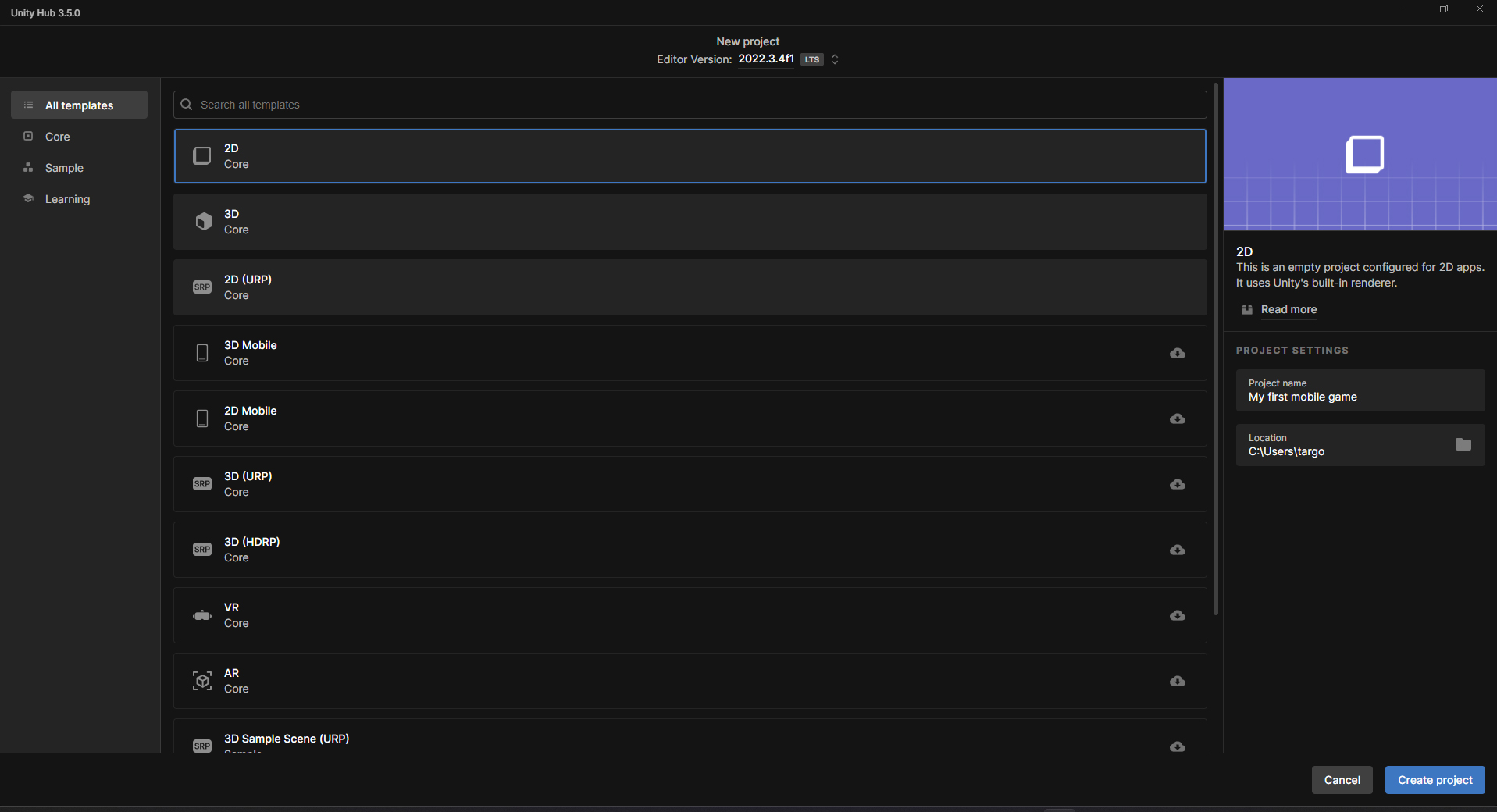
Step 3: Familiarize Yourself with the Interface
The Unity interface is where you'll spend most of your game development time. Get familiar with key areas:
- Hierarchy: Displays all game objects in your scene.
- Scene: Where you arrange your game objects.
- Game: Shows what your game looks like when playing.
- Project: Your files, assets, scripts, etc.
- Inspector: Shows details of a selected game object.
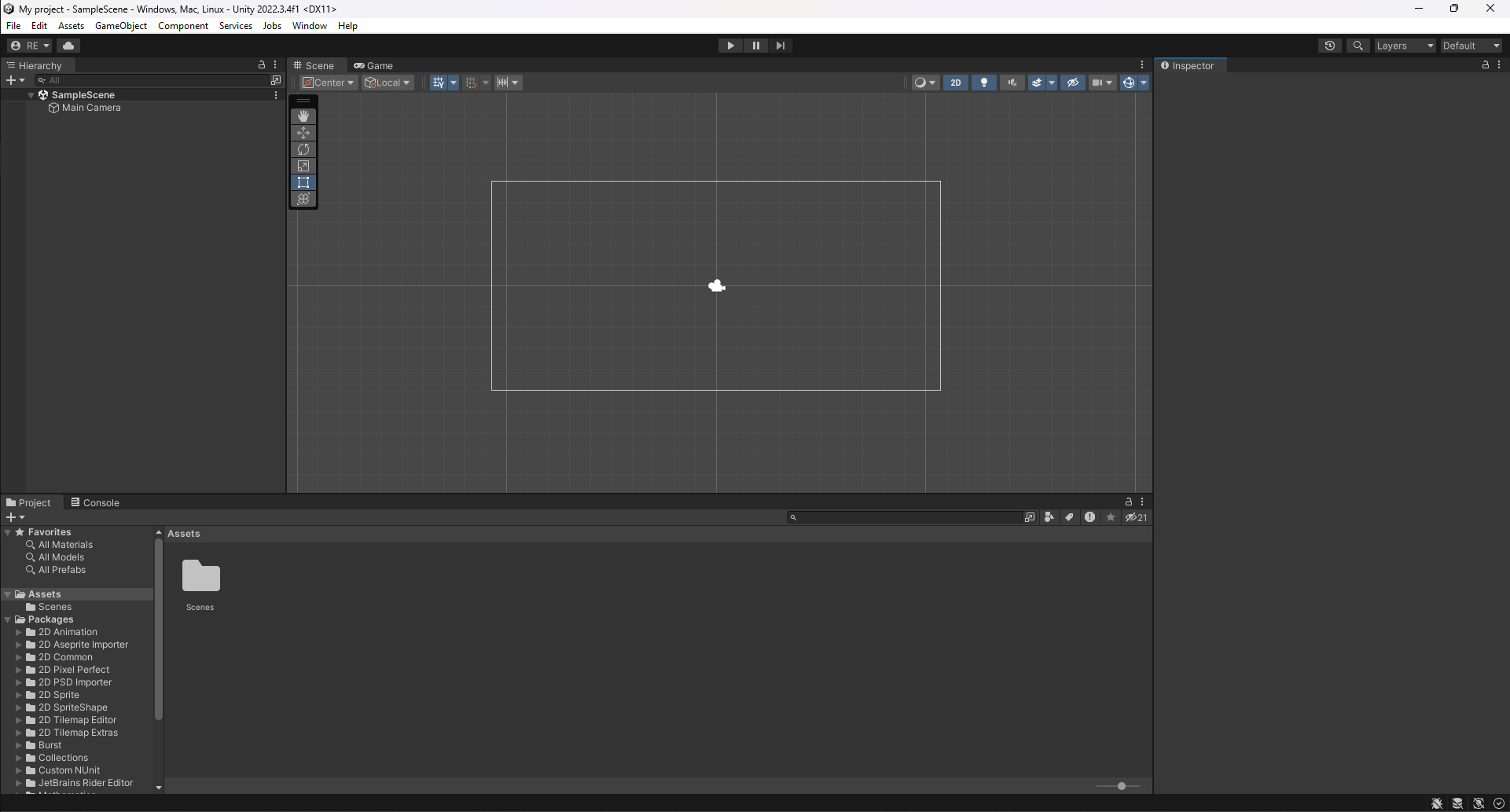
Step 4: Importing Assets
Now that we know how to make a game in Unity let's make it look good. To do that, we need to import assets:
- Click Assets > Import New Asset.
- Navigate to your files, select them, click Import.
Repeat this process to import all the necessary assets for your game.
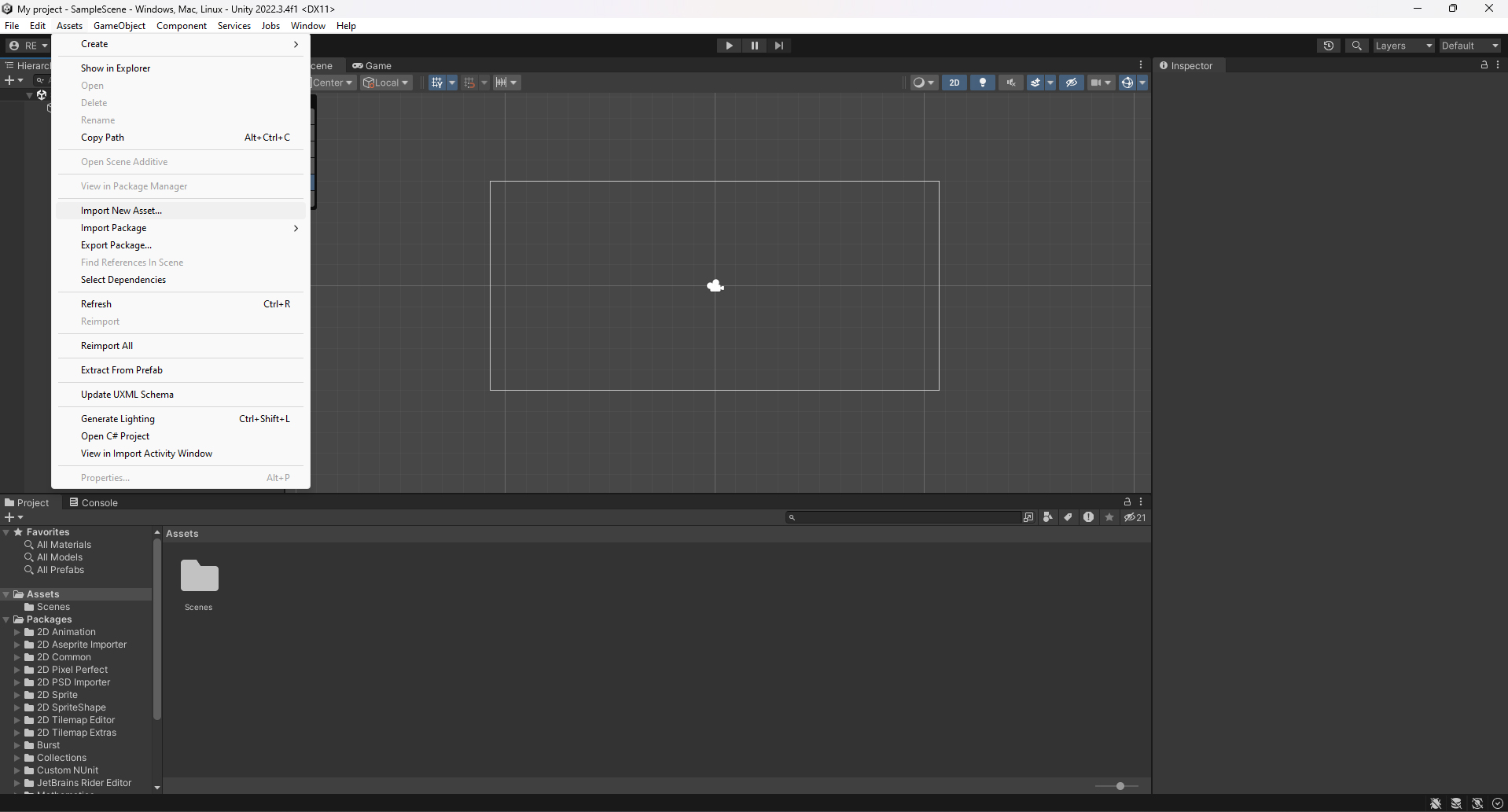
Step 5: Creating the Game Scene
Your game scene is where all the action happens. Here's how to create a scene in your game:
- Click File > New Scene.
- Rename your scene appropriately.
- In the Hierarchy panel, where your project is, click the three dots, then move to GameObject > 3D Object > Plane to create the basic ground (for 2D, the process is relatively the same).
- Adjust the size and position as necessary.
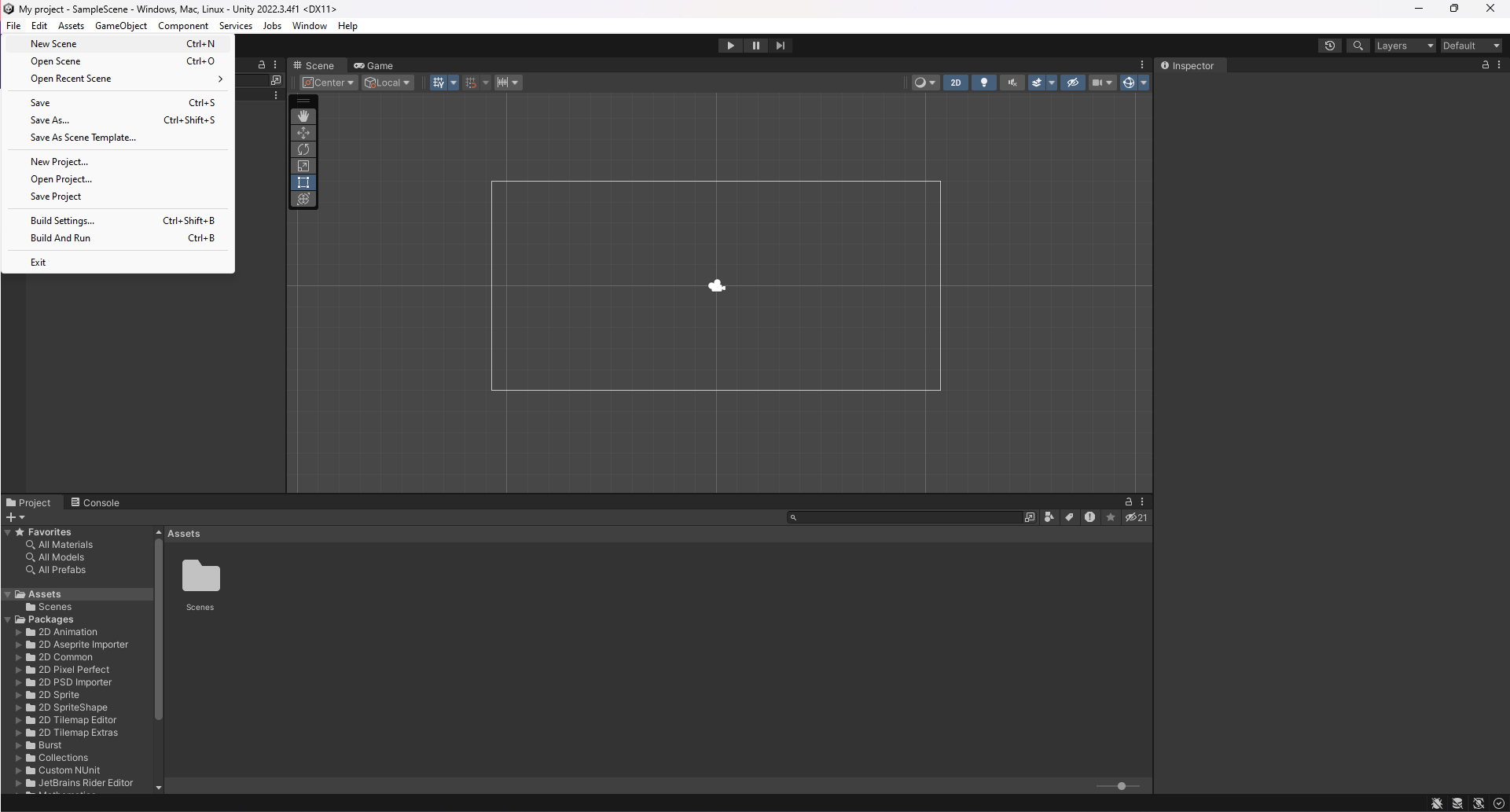
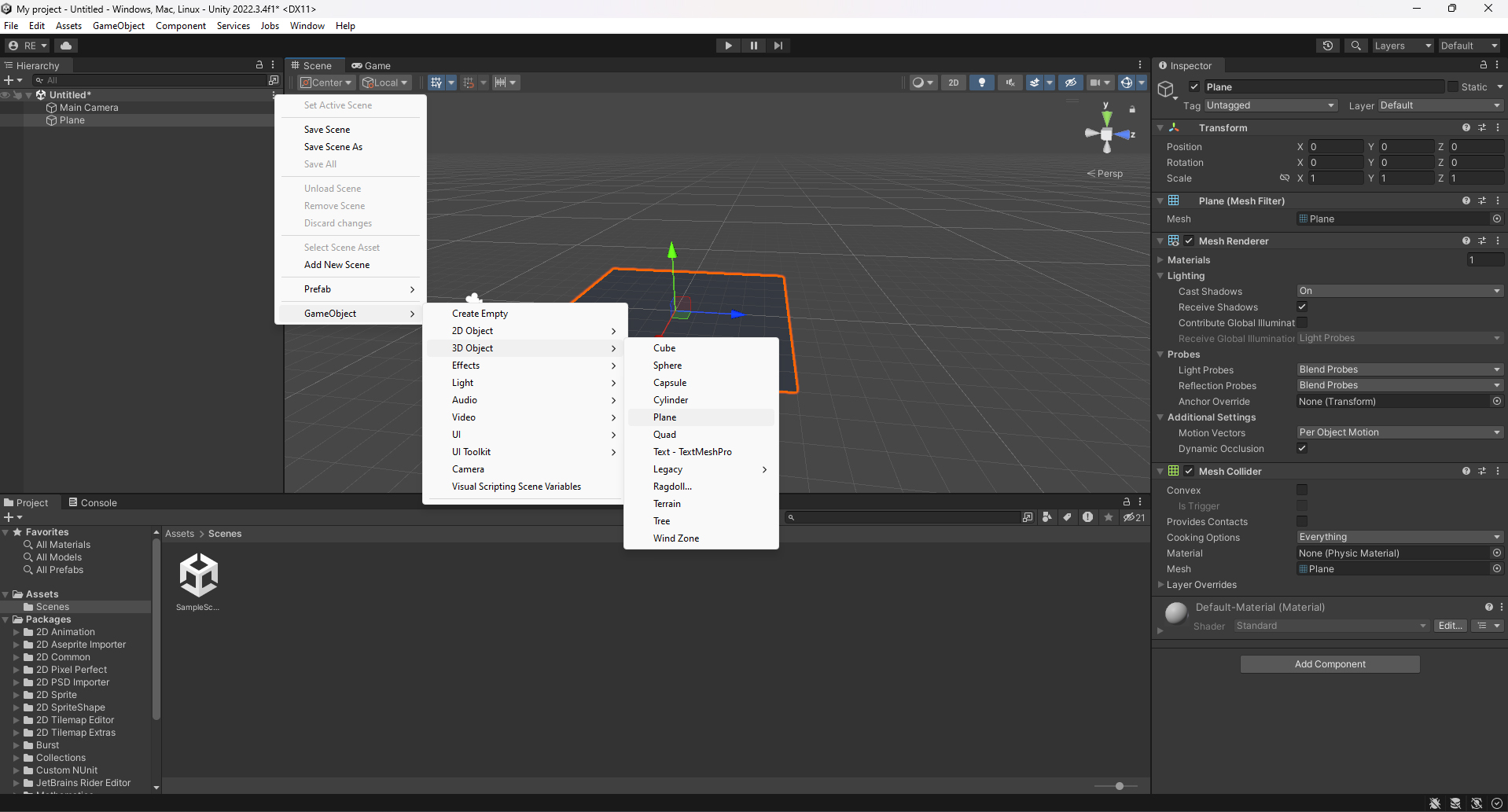
You've created the basic framework for your game in Unity.
Step 6: Designing Game Elements
Now let's add core elements to our game. We'll use 3D low-poly assets for this. But first, let’s go to the Unity Asset Store, filter assets to search for only free ones, and find a pack that meets your mobile game development goals.
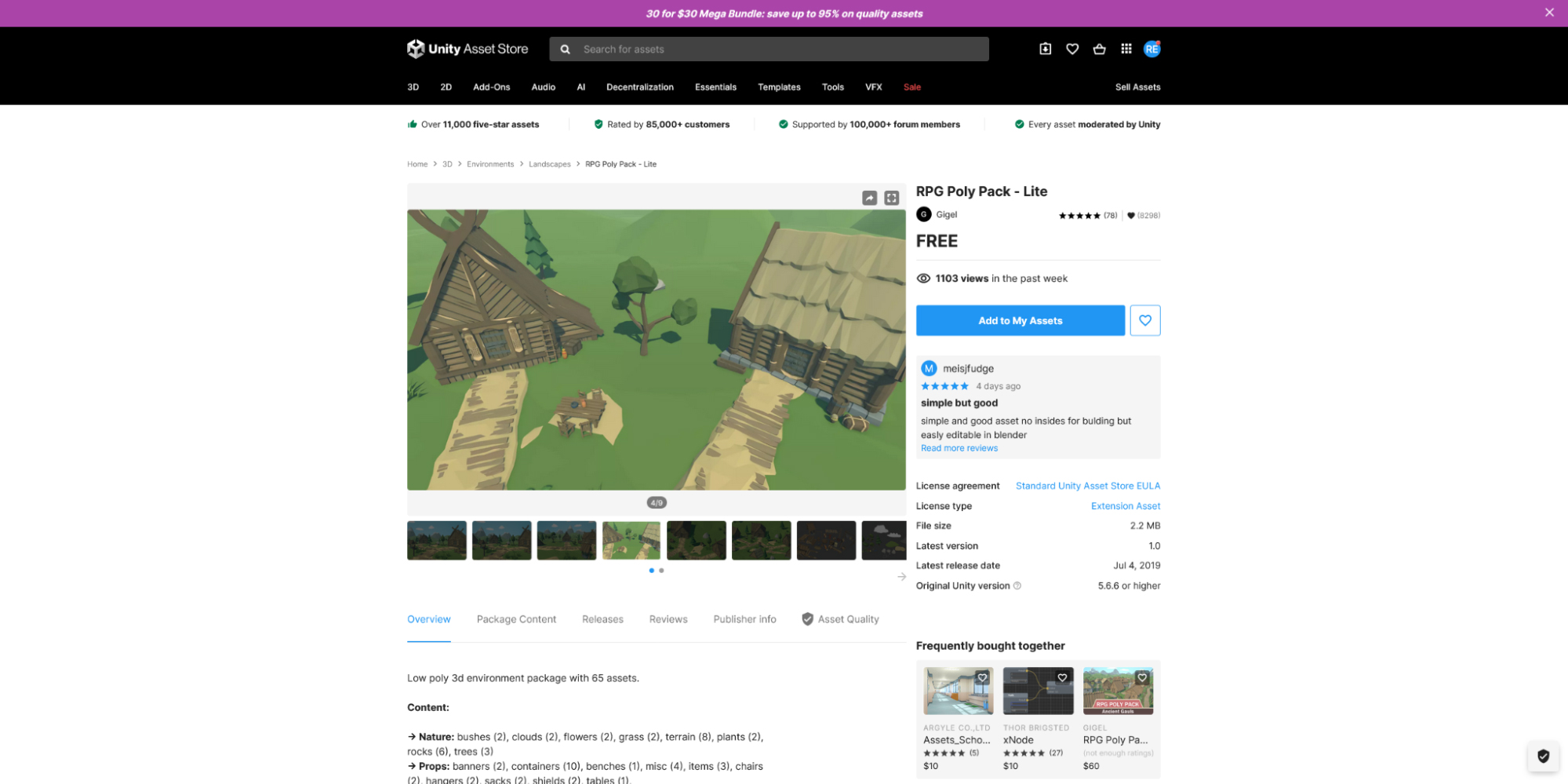
Then you can:
- Create an Objects folder in your Project panel.
- Import your assets into this folder (it’s an intuitive process in the latest Unity version).
- Drag and drop them onto the Hierarchy panel to add them to your scene.
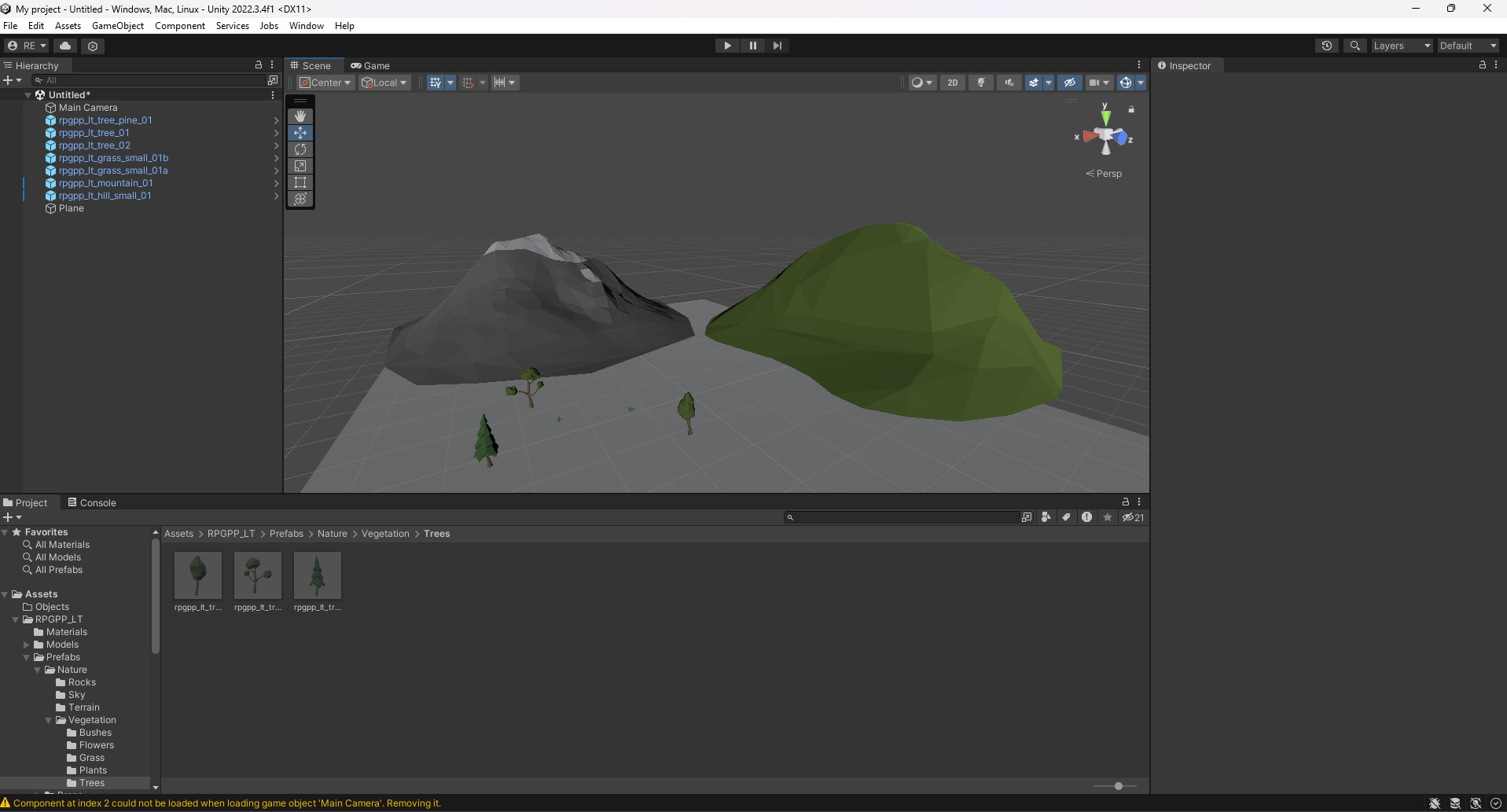
Remember to add Collider components to your assets for interactivity. You can do this by selecting a specific asset you’ve dragged to your scene from the Objects folder, clicking on the ‘Add Component’ button in the bottom right corner of the screen, and typing in ‘Box Collider.’
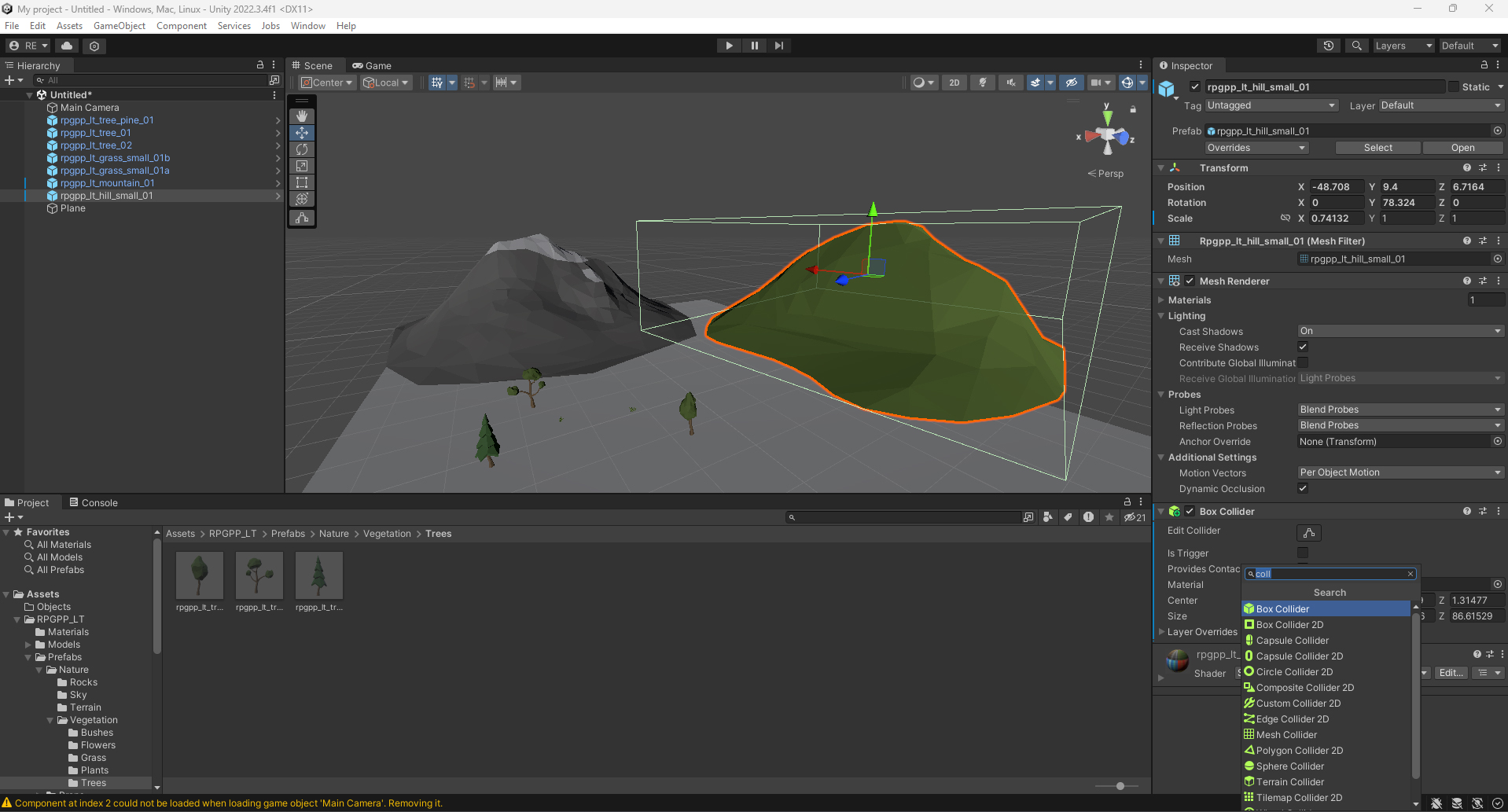
Step 7: Scripting
Unity uses C# for scripting. This allows game developers to build intricate games with Unity:
- Right-click in the Project panel, choose Create > Folder, and name it Scripts.
- To create a script, right-click in the Scripts folder, choose Create > C# Script.
- Name your script (using PascalCase, like on the screenshot below — ‘PlayerController’) and double-click it to open your code editor.
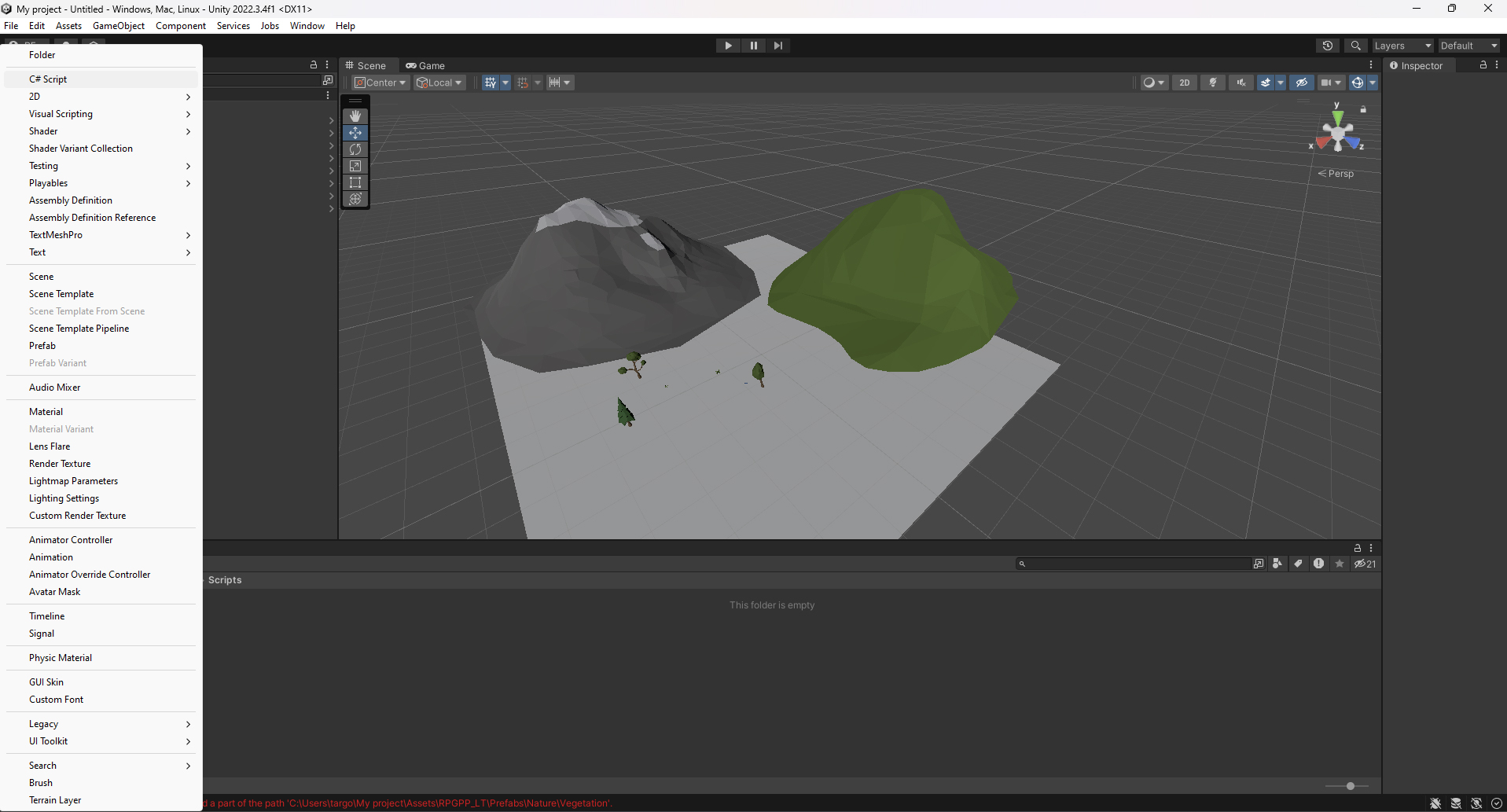
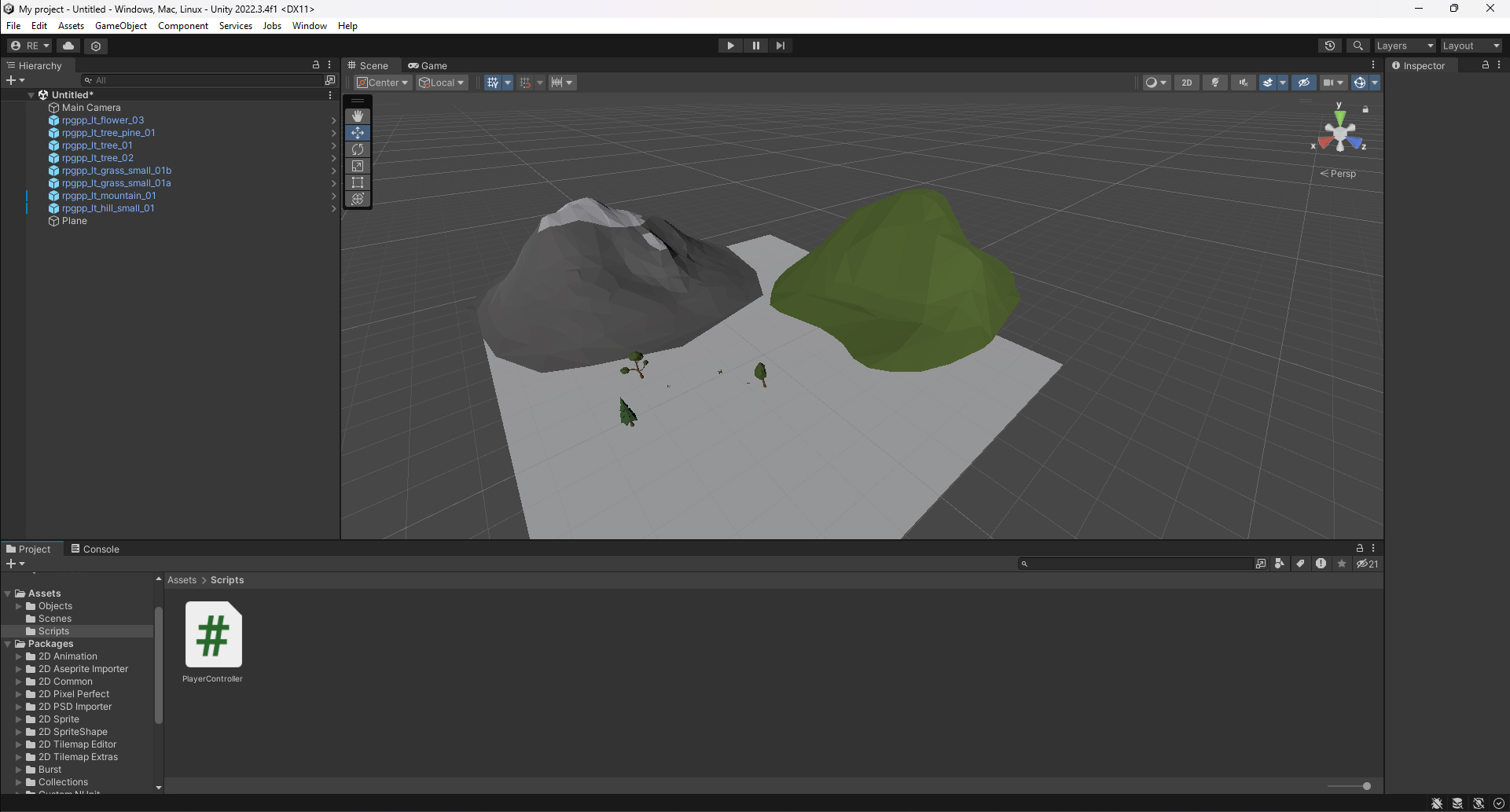
Writing scripts is a core part of how to make games in Unity.
Step 8: Setting Up the UI
Good UI design is crucial in any game, especially mobile games:
- Click GameObject > UI to create UI elements.
- Position these elements as necessary.
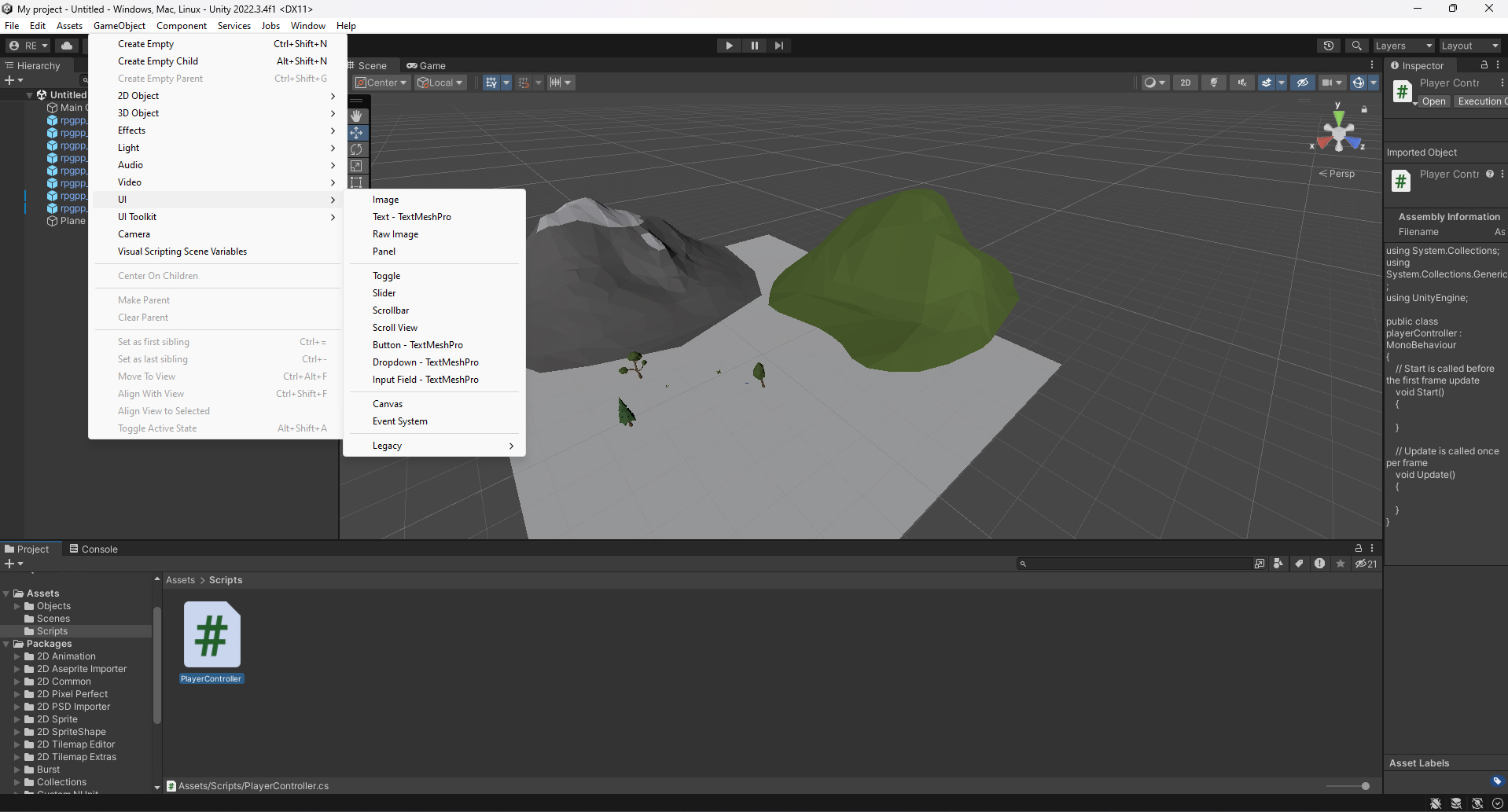
UI is the interface between the player and the game, so make it intuitive!
Step 9: Testing
Testing is an iterative part of game development:
- Click the ‘Play’ button to start a playtest.
- Observe how the game works, note any issues, stop the game, fix them, and test again.
Step 10: Building the Game
Once you are satisfied, it's time to create a build of your game:
- Click File > Build Settings.
- Install the required packages with Unity Hub, select your target platform (iOS or Android), and click ‘Switch Platform.’
- Click ‘Build’ to create your game build.
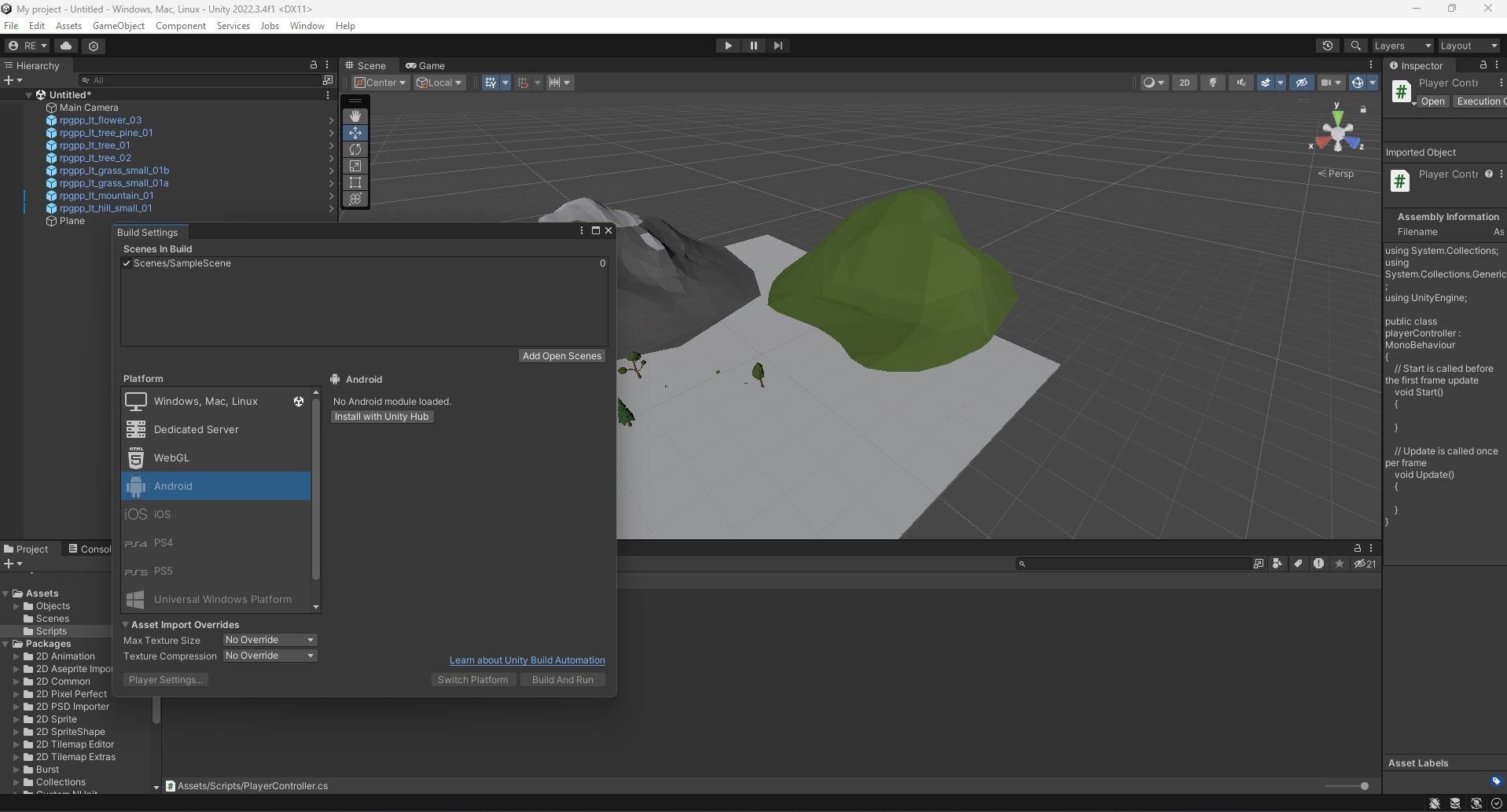
Congrats! You've completed this Unity mobile game tutorial, learning how to make a game with Unity. Keep practicing, and soon, you'll be creating amazing mobile games with Unity!
Step 11: Troubleshooting
Even seasoned developers encounter problems during game development in Unity. Keep in mind the following points when troubleshooting:
- Error messages are your friends: they provide valuable insight into what might be causing an issue.
- Unity's documentation and user community are robust and full of solutions to common problems.
- Always save your work before making major changes, and consider using a version control system.
Remember, problem-solving is a fundamental part of learning how to make a game in Unity.
In Unity, the Debug.Log() method is used to print messages to the Console. This can be really useful for troubleshooting as it can help you track the flow of your code and spot errors. Here is a basic example written in C#:

In this short script, when the game starts, Unity will print "The Start method has been called." to the Console. After that, "Update method is running." will be printed to the Console once every frame.
Step 12: Polishing
Polishing your game is an often overlooked yet crucial step in game development. This is your chance to enhance your game’s visuals, sound, and overall feel:
- Make sure all UI elements are clear and easy to interact with.
- Enhance your game's atmosphere with background music and sound effects.
- Add particle effects or shaders for a more visually appealing game.
Step 13: Publishing Your Game
After completing the development and testing stages, you are ready to publish your game:
- Go to File > Build Settings > Player Settings.
- Fill out the necessary fields in the Publishing Settings.
- Click ‘Build’ to compile your game into an application.
That's it! You've published your first mobile game with Unity!
The Bottom Line
This Unity mobile game tutorial aims to guide you on how to make a game with Unity and be a lesson to learn. By following these steps, you can successfully make a game in Unity. This process is just the beginning of your game development journey. Remember, the more you practice and explore, the better you become at making games with Unity.
Game development is a field filled with endless possibilities, and Unity is an incredibly powerful tool for turning those possibilities into reality. By learning how to make games in Unity, you are opening yourself up to a world of creativity and innovation.
Whether you are an aspiring game developer or a seasoned professional looking to expand your skills, we hope this tutorial has brought you closer to realizing your game development goals. Keep exploring, keep creating, and most importantly, have fun!
Congrats again! You've not only made your first game in Unity but also walked through the full process of mobile game development in Unity. Your journey has only just begun. Happy gaming and game making!
How to Make a Successful Mobile Game in Unity
Making a profitable game that resonates with a broad audience and ranks in high numbers is a towering feat. Embarking on such a mission for your initial attempt or with constrained resources can be daunting. However, remember — you are not navigating these waters alone!
Armed with over a decade of game development expertise, Game-Ace is your steadfast ally in this quest. Our game development experience transcends platform boundaries, enabling us to create games in Unity that leave a global footprint. Our skilled staff, with a multitude of projects under their belts, ensures your expansive vision and ambition are not only welcomed but celebrated. We are your seasoned co-pilots in this exciting journey of game creation.
Are you keen on bringing your dream game in Unity to life? Don't hesitate! Reach out to us today. Together, we can discuss the path that leads to your aspiration becoming a reality, embarking on a project that fulfills your dreams and potentially inspires thousands of others. We are more than a team — we are your partners in navigating the thrilling waters of Unity game development. Game-Ace is ready to guide your journey from concept to creation and beyond.
Whether it's your first game or one among many, our experience with games in Unity ensures we are well-equipped to handle any project. So let's collaborate and start crafting your dream game today. A truly spectacular and profitable game is within your grasp. Let's seize it together. Trust in the power of Unity, trust in Game-Ace. Your game development adventure starts now.
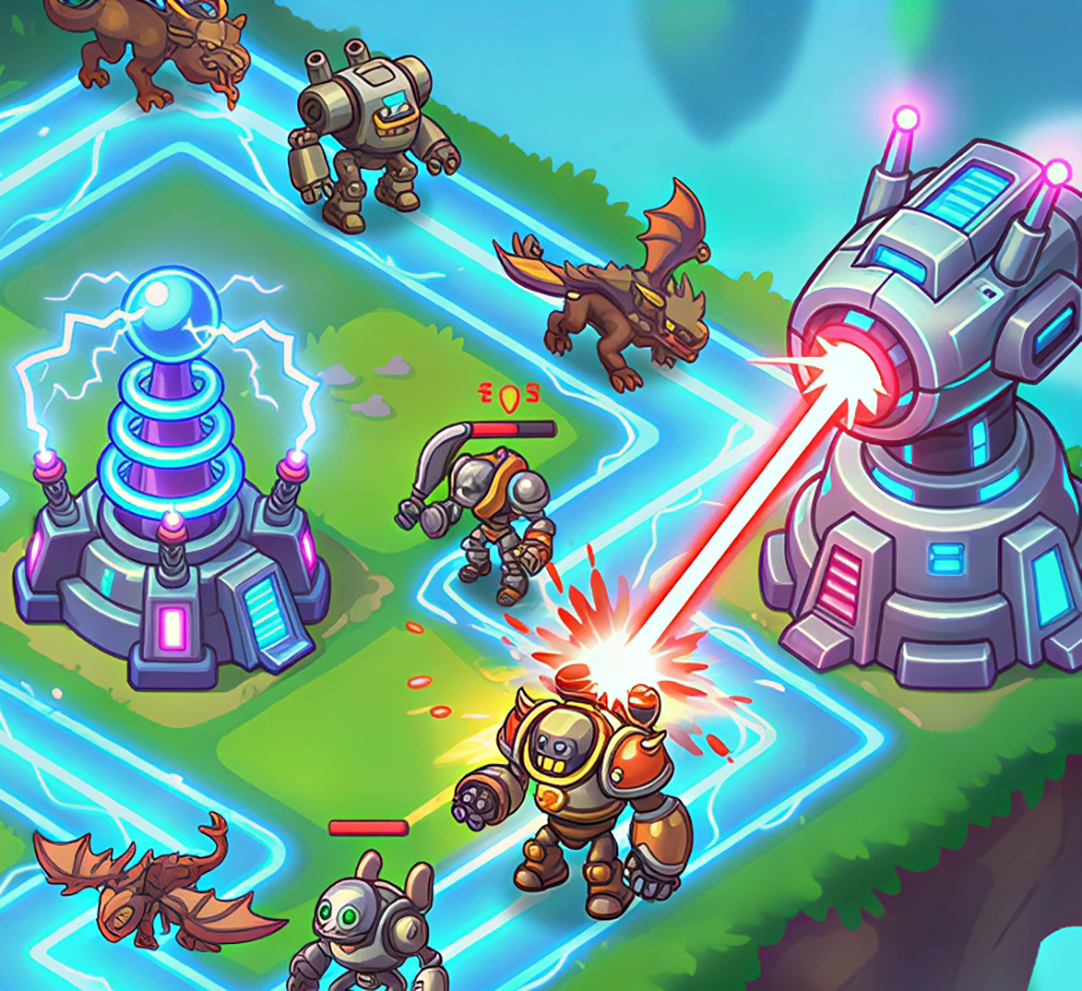 Engineering the Next Generation of Tower Defense Games
Engineering the Next Generation of Tower Defense Games 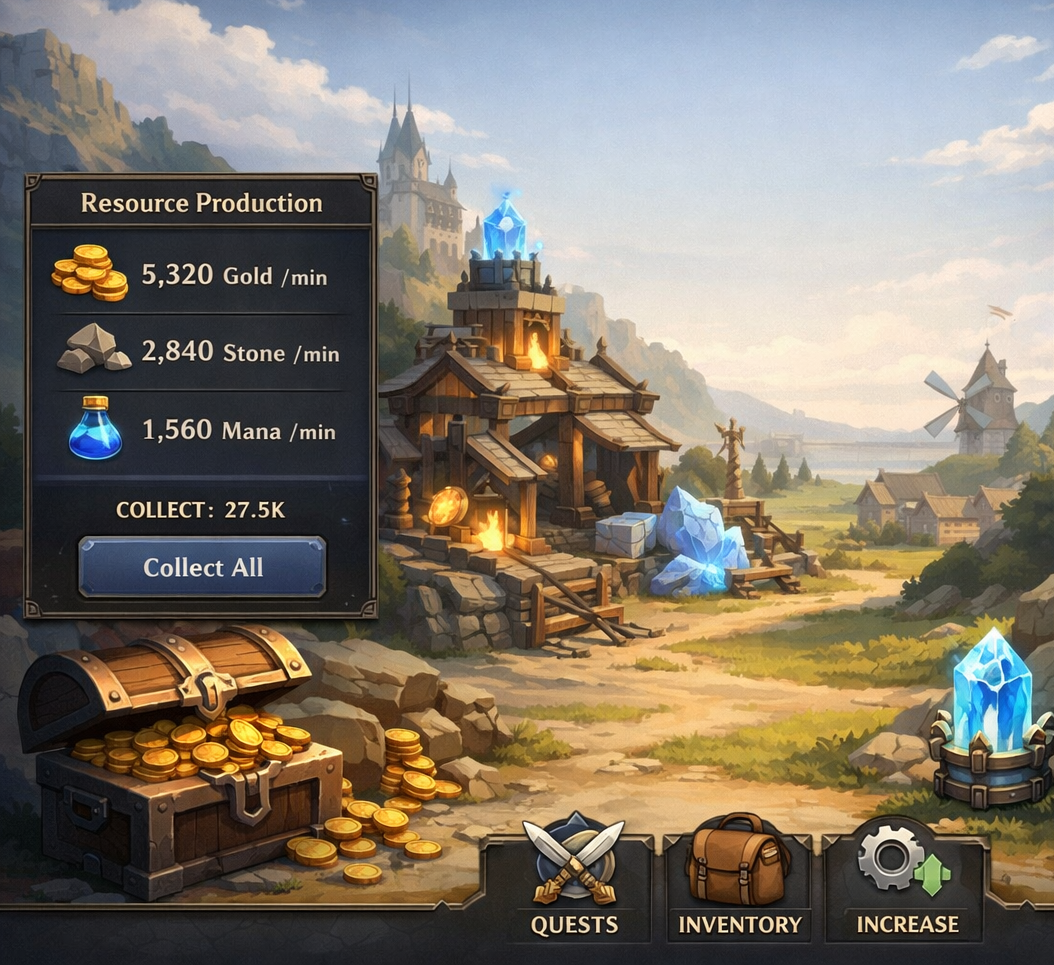 How to Turn Idle Game Development into a Scalable, Long-Term Revenue Product
How to Turn Idle Game Development into a Scalable, Long-Term Revenue Product  Key Trends Shaping Gamification in Recruitment for 2026 and Beyond
Key Trends Shaping Gamification in Recruitment for 2026 and Beyond  How to Create Crypto Casino Games the Right Way
How to Create Crypto Casino Games the Right Way  AI Recruitment Games: From Real-Time Assessments to Better Hiring Outcomes
AI Recruitment Games: From Real-Time Assessments to Better Hiring Outcomes 